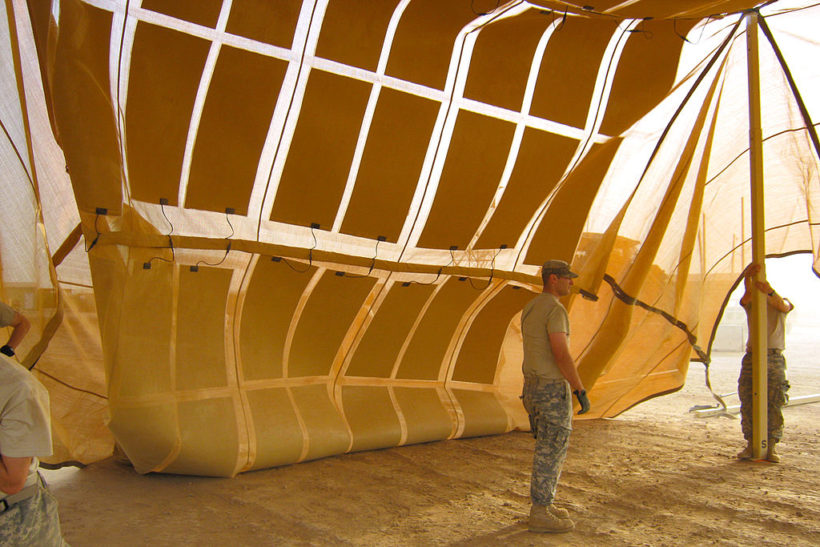 By LYNN ABRAMSON
By LYNN ABRAMSON
In a visit to Fort Drum on August 13, President Trump signed into law the John S. McCain National Defense Authorization Act for Fiscal Year 2019 (P.L. 115-232), or NDAA. The new law includes key provisions on energy infrastructure modernization, resilience, and climate change preparation in the interest of national security.
Defining Resilience and Requiring Its Consideration
The new law requires every military installation’s master plan to include an examination of energy and climate resilience, defined as “anticipation, preparation for, and adaptation to utility disruptions and changing environmental conditions and the ability to withstand, respond to, and recover rapidly from utility disruptions while ensuring the sustainment of mission-critical operations.”
This is the first time a defense authorization bill has included a legal definition of resilience. Implementation of the new law could promote greater military adoption of clean and efficient energy solutions such as microgrids, baseload renewable energy, storage, and demand response measures.
A 2017 Noblis report commissioned by the Pew Project on National Security, Energy, and Climate concluded that “The U.S. Defense Department could save hundreds of millions of dollars annually and boost energy security by installing more microgrids and renewable power systems.”
A Nod to Performance Contracting and Third-Party Financing
The law also provides $2.47 billion for Sustainment, Restoration, and Maintenance (SRM) funding. The Senate Armed Services Committee included language in its committee report on the bill earlier this summer urging the Department of Defense to utilize third-party financing and maximize energy infrastructure investments via mechanisms such as Energy Savings Performance Contracts (ESPCs) and Utility Energy Service Contracts (UESCs). ESPCs and UESCs are finance mechanisms in which the private sector develops an energy project at a government facility and is repaid over time out of guaranteed and verified cost savings. The committee also urged the DOD to develop mechanisms for reducing backlogs in issuing these contracts.
The performance contracting language does not appear in the final Conference Report jointly adopted by the House and Senate, but the Senate committee’s earlier nod may still encourage more widespread utilization of this financing mechanism. A legal fix enacted in 2017 also changed how the Congressional Budget Office estimates the cost of ESPC and UESC projects, making the financing tool more appealing to federal agencies.
According to the Federal Performance Contracting Coalition, “Since inception, ESPCs have achieved over $20 billion in guaranteed energy savings across the federal government.”
For examples of resilient clean energy solutions, listen to episode 1 of the CEBN’s podcast, Powering Through the Storm (9.22.17).
Editor’s note: this article originally appeared on the Clean Energy Business Network (CEBN) at https://cebn.org/defense-authorization-bill-includes-provisions-on-modernizing-energy-infrastructure-and-enhancing-resilience/
Lynn Abramson is the President of the Clean Energy Business Network, leading the CEBN’s educational, advocacy, and business support services and representing the network before public and policymaker audiences. She is responsible for the development and execution of the network’s strategic plan and facilitating member engagement. Lynn previously managed the CEBN at its former home in The Pew Charitable Trusts from July 2013 until its transition to the Business Council for Sustainable Energy in May 2017. Lynn has also worked as a senior legislative assistant in the U.S. Senate on energy, natural resources, and transportation policy. She holds a B.A. in Biology from Boston University and a Ph.D. in Marine and Atmospheric Sciences from Stony Brook University.
The Clean Energy Business Network (CEBN) works to advance the clean energy economy through policy, public education, and business support for small- and medium-size energy companies. Started in 2009 by The Pew Charitable Trusts, the CEBN is now a small business division of the Business Council for Sustainable Energy. The CEBN represents 3,000+ business leaders across all 50 U.S. states working with a broad range of clean energy and transportation technologies.



Leave a Reply